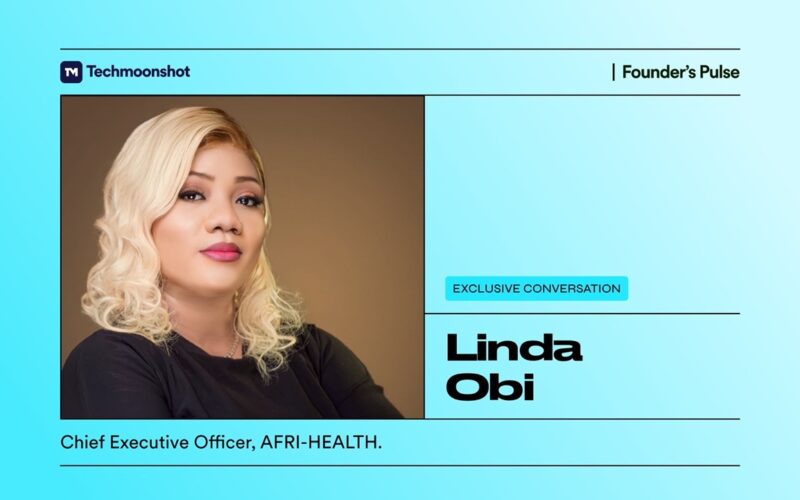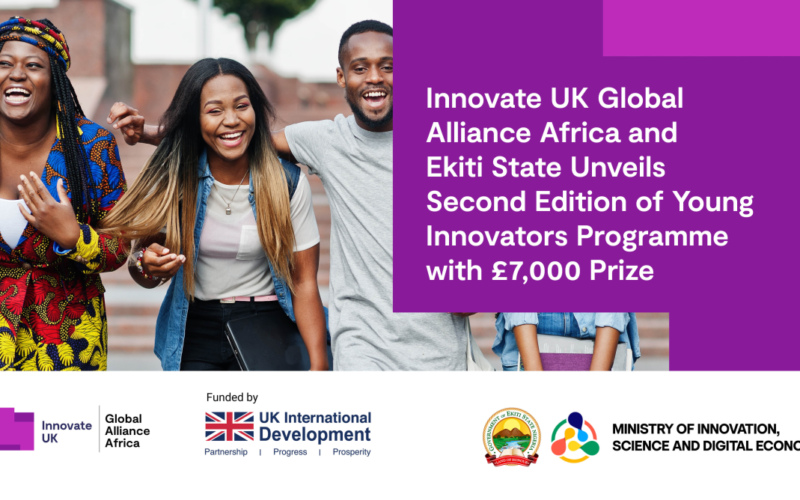Linda Obi, CEO of AfriHealth, is a visionary leader on a mission to revolutionize technology, blockchain, and healthcare across Africa. With a career spanning over 15 years, Linda has mastered various sectors including FMCG and agri-tech, and is passionate about driving innovation and transformative solutions.
As the founder of TechonomyAfrica, Linda has empowered countless students by providing them with education and opportunities in blockchain and cryptocurrency. Her leadership extends to her role in Global Operations at Zenith Chain, where she has been pivotal in advancing technological solutions on a global scale. Linda is also a dedicated mentor at the Tony Elumelu Foundation, guiding the next generation of entrepreneurs and leaders.
Her contributions and influence are further recognized by her role as a Council Member of the Forbes Business Council, where she collaborates with other leading professionals to drive business excellence. Named one of the Top 100 Women of the Future, Linda’s achievements reflect her commitment to innovation and excellence.
In this exclusive conversation, Linda Obi, the CEO of AfriHealth, delves into her visionary outlook on the future of healthcare in Africa. She discusses how innovative technologies and transformative solutions are set to revolutionize the industry, addressing the unique challenges and opportunities that the continent faces.
Can we get to know you?
I am Dr. Linda Obi, CEO of AfriHealth Limited, a pioneering telemedical company revolutionizing healthcare access across Nigeria and Africa. With over 15 years of experience, I have become a thought leader in tech and healthcare, known for driving impactful change through innovative solutions.
As a member of the Forbes Business Council and the Tony Elumelu Foundation, I have shared insights at international conferences. Under my leadership, AfriHealth launched Rigour+, an app providing telemedicine services and medication access. I am committed to promoting inclusivity in tech and have mentored over 1,000 women and girls, empowering them to pursue leadership roles in technology.
Can you tell us a bit about your background and what inspired you to venture into the health-tech sector?
My journey into health-tech is rooted in a profound desire to address the critical healthcare challenges in Africa. With a background in technology and business, I have always been passionate about using tech for social good. Growing up, I witnessed the struggles of accessing quality healthcare, which inspired me to find innovative solutions to bridge these gaps.
My career spans over 15 years, during which I have combined my skills and experiences to lead projects that make healthcare more accessible and efficient. My inspiration comes from the belief that technology can revolutionize healthcare delivery, ensuring that everyone, regardless of their location, has access to quality services. This vision drives my work every day, as I strive to create a more inclusive and effective healthcare system.
Who were your role models or mentors, and how have they influenced your journey in health-tech?
My journey in health-tech has been profoundly influenced by remarkable role models and mentors who have shaped my vision and drive.
Dr. Ngozi Okonjo-Iweala’s resilience and leadership in global economics taught me the importance of tenacity and strategic thinking, inspiring me to pursue ambitious goals in healthcare. Ibukun Awosika’s entrepreneurial spirit and commitment to excellence showed me the power of innovation and perseverance, teaching me to embrace challenges as growth opportunities. Amina Mohammed, Deputy Secretary-General of the UN, inspired my approach to leadership and social impact, championing inclusive healthcare solutions.
Mentorship from industry leaders through the Forbes Business Council and the Tony Elumelu Foundation has refined my strategies and supported impactful projects. These influences instilled resilience, innovation, and a commitment to social good, driving me to leverage technology for equitable healthcare solutions and lead with purpose and vision.
What challenges did you face as a female entrepreneur in Nigeria, and how did you overcome them?
As a female entrepreneur in Nigeria, I faced several challenges, but they shaped my resilience and determination.
Gender Bias: I often encountered skepticism about my abilities. By consistently delivering exceptional results and maintaining professionalism, I gradually earned respect and recognition.
Access to Funding: Securing funding was difficult due to biases. Building a strong network through the Forbes Business Council and the Tony Elumelu Foundation helped me gain investor confidence and access to capital.
Balancing Responsibilities: Juggling professional and personal responsibilities was challenging. Effective time management and a supportive team allowed me to focus on strategic decisions.
Societal Expectations: I challenged traditional norms by advocating for gender equality and mentoring other women. Promoting inclusivity helped change perceptions and empower more women in business.
These challenges taught me resilience, the importance of a supportive network, and the power of persistence.
What motivated you to start your Afri-health, and what problem were you aiming to solve?
My motivation to collaborate with AfriHealth arose from a deep desire to address critical healthcare challenges in Nigeria. Growing up, I saw firsthand the struggles people faced in accessing quality healthcare, especially in rural areas. This experience ignited my passion to contribute to a solution that leverages technology to bridge these gaps.
At AfriHealth, we are committed to solving the issue of inadequate healthcare access. Our goal is to ensure that everyone, regardless of their location, can connect with qualified doctors, access authentic medications, and receive timely medical assistance. By using technology, we aim to create a more inclusive and efficient healthcare system, improving health outcomes for communities across Nigeria.
Can you share some of the key milestones and achievements of your company so far?
AfriHealth has reached several key milestones, demonstrating our commitment to revolutionizing healthcare access in Nigeria and beyond:
Launch of Rigour+: We launched Rigour+, a telemedical platform allowing users to book consultations, purchase medication, verify authenticity, and book ambulances from home.
Forbes Business Council Membership: Our inclusion in the Forbes Business Council highlights our significant contributions to healthcare and positions us among leading industry innovators.
Government Partnerships: We established strategic partnerships with state and federal government bodies, including a collaboration with the Federal Ministry of Health to deploy smart clinics focusing on reproductive, maternal, newborn, child, and adolescent health.
International Recognition: I have spoken at international conferences across three continents, sharing our healthcare technology innovations and expanding our impact globally.
Mentorship and Empowerment: We have mentored over 1,000 women and girls, encouraging careers in technology and healthcare to address gender disparities.
Innovative Healthcare Solutions: Our technology-driven healthcare solutions have improved health outcomes for numerous communities, leveraging AI and blockchain technology.
These milestones reflect our dedication to making quality healthcare accessible and our efforts to innovate and lead in the health-tech sector.
What role does data play in your health-tech solution, and how do you ensure data privacy and security?
Data is essential in our health-tech solutions for making informed decisions, personalizing patient care, and improving healthcare outcomes. It helps healthcare providers understand patient histories and trends, tailor treatments, and monitor progress effectively.
Ensuring Data Privacy and Security:
- Regulatory Compliance: We adhere to data protection laws like Nigeria’s NDPR and GDPR, ensuring we meet all privacy standards.
- Encryption: All patient data is encrypted during transmission and storage, keeping it secure and unreadable by unauthorized parties.
- Access Controls: We use strict access controls, allowing only authorized personnel to access sensitive information through role-based access and multi-factor authentication.
- Regular Audits: Regular security audits and continuous monitoring help us detect and address vulnerabilities promptly.
- Patient Consent: We ensure patients know how their data is used and give them control over their data-sharing preferences.
- Staff Training: Our staff receive ongoing training on data privacy and security best practices, ensuring they handle patient data responsibly.
By prioritizing these measures, we ensure data privacy and build trust with our users.
What does a typical day look like for you as the CEO of Afri-health? any unique routines or habits that keep you productive?
A typical day as the CEO of AfriHealth is dynamic, balancing strategic and operational tasks.
Morning Routine: I start early with meditation, exercise, and a healthy breakfast while catching up on industry news.
Daily Operations: My workday begins with reviewing key metrics and holding a daily stand-up meeting to align priorities and address immediate concerns.
Strategic Planning: I focus on strategic planning, exploring partnerships, overseeing product development, and planning market expansion through meetings and brainstorming sessions.
Mentorship and Networking: I allocate time to mentor upcoming female leaders in tech and network with industry peers to stay informed about new developments.
Innovation Focus: I set aside time daily to explore the latest technological advancements and integrate them into AfriHealth’s solutions.
Evening Reflection: I end my day with reflection and planning for the next day to stay organized and aligned with AfriHealth’s mission.
These routines ensure I remain productive, focused, and aligned with our mission to revolutionize healthcare access.
How do you envision the health-tech landscape in Nigeria evolving over the next five to ten years?
The health-tech landscape in Nigeria is set for exciting changes over the next five to ten years:
- Greater Accessibility: More Nigerians, especially in rural areas, will access telemedicine services through mobile technology and increased internet coverage, bridging the urban-rural healthcare gap.
- AI and Machine Learning: These technologies will revolutionize diagnostics and treatment plans, making healthcare more personalized and efficient.
- Blockchain for Health Records: Blockchain will secure patient data and streamline electronic health records, enhancing data privacy and reducing fraud.
- Expanding Digital Health Platforms: Services like online consultations and medication delivery will grow, integrating with wearable devices for real-time health monitoring.
- Stronger Collaborations: Increased partnerships between government and private sectors will drive innovation and investment, supported by favorable policies.
- Health Education: Digital channels will promote health education, empowering Nigerians with knowledge for better preventive care.
- Local Startups: Innovative health-tech startups will emerge, creating solutions tailored to Nigeria’s unique healthcare challenges.
- Improved Infrastructure: Investments in telemedicine hubs and smart clinics will enhance healthcare delivery with advanced technology.
These advancements promise to make healthcare more accessible, efficient, and of higher quality, ultimately improving health outcomes across the country.
Does Afri-health have an expansion plan into other African markets?
Yes, AfriHealth has ambitious plans to expand into other African markets. Our goal is to replicate our success in Nigeria across the continent, addressing similar healthcare challenges in other countries. Here’s a brief overview of our expansion strategy:
- Targeted Markets: We are focusing on countries with significant healthcare access challenges, starting with West African nations. These include Ghana, Kenya, and Rwanda, where we see a strong potential for impact.
- Partnerships: Establishing partnerships with local governments, healthcare providers, and tech companies is key to our expansion. These collaborations will help us understand and address the unique healthcare needs of each market.
- Localized Solutions: We aim to tailor our telemedicine services to fit the specific cultural and healthcare landscapes of each new market. This involves customizing our platform to meet local regulations and healthcare practices.
- Leveraging Technology: Using cutting-edge technologies like AI and blockchain, we plan to enhance healthcare delivery and data management, ensuring security and efficiency across all operations.
- Building Infrastructure: Developing local telemedicine hubs and smart clinics will be a priority, providing a solid foundation for our services in new regions.
- Community Engagement: Engaging with local communities through health education and awareness programs will be crucial to our success, helping to build trust and promote the adoption of our services.
AfriHealth’s vision is to create a continent-wide network of accessible, high-quality healthcare services, leveraging technology to overcome barriers and improve health outcomes for millions of Africans.
One word to describe your journey so far as Afri-health CEO?
Transformative.
Why did you choose that word?
I chose the word “Transformative” because my journey with AfriHealth has been about driving significant change and making a lasting impact. From leveraging technology to improve healthcare access to creating innovative solutions that address critical health challenges, each step has been about transformation. This journey has not only transformed the way healthcare is delivered but also has profoundly changed my perspective, skills, and leadership approach.
If you could invent a piece of technology to solve any problem, what would it be and why?
If I could invent a piece of technology, it would be an AI-powered universal health assistant. This assistant would provide real-time medical advice, monitor health metrics through wearables, and offer personalized health recommendations, accessible via smartphones and other devices.
This technology would bridge the gap for those lacking timely medical care, enable early identification of health issues, offer tailored health advice, and empower individuals with knowledge about their health. It would revolutionize healthcare delivery, making quality care accessible and personalized for all.
What do you enjoy doing in your free time outside of work?
I prioritize quality time with family and friends, whether at a casual dinner or a fun outing. I enjoy reading diverse books, from technology and business to personal development and fiction, which helps me unwind and gain new insights. Traveling to explore new places and cultures recharges and inspires me.
Mentoring young women and aspiring entrepreneurs brings me joy as I share my experiences and guide others. Regular exercise, like jogging, yoga, or gym workouts, keeps me energized and focused. These activities contribute to a well-rounded and fulfilling life outside of my professional commitments.
What piece of advice would you give to young women in Nigeria aspiring to start their own tech companies?
To young women in Nigeria aspiring to start their own tech companies, here are some key pieces of advice:
- Believe in Yourself: Confidence is crucial. Trust your abilities and vision despite self-doubt or skepticism.
- Seek Mentorship: Find mentors through platforms like the Tony Elumelu Foundation and the Forbes Business Council to guide you.
- Build a Strong Network: Connect with entrepreneurs, industry experts, and potential investors at tech conferences and on LinkedIn.
- Continuously Learn: Stay updated with the latest tech trends, technologies, and best practices through courses, workshops, and reading.
- Start Small, Think Big: Begin with a small project or MVP, focusing on solving a specific problem effectively, then scale up.
- Embrace Failure: Learn from mistakes and keep moving forward. Each setback is an opportunity to grow.
- Prioritize Innovation: Be open to new ideas and foster a culture of creativity and problem-solving within your team.
- Focus on Impact: Create solutions that make a positive difference, addressing real needs in sectors like healthcare or education.
- Manage Finances Wisely: Keep a close eye on your finances, manage resources efficiently, and plan for sustainability.
- Advocate for Yourself: Promote your achievements and ideas, seek opportunities, and don’t shy away from self-promotion.
Starting a tech company is challenging but rewarding. With determination, resilience, and the right support, you can make a significant impact and achieve your entrepreneurial dreams.
Finally, What books, podcasts, or articles have influenced your entrepreneurial journey?
Throughout my entrepreneurial journey, several books, podcasts, and articles have provided valuable insights and inspiration. Here are some of my top influences:
Books:
- “Lean In” by Sheryl Sandberg: This book emphasizes the importance of women pursuing their ambitions and provides practical advice on achieving career success and leadership.
- “The Lean Startup” by Eric Ries: It offers a framework for developing businesses by prioritizing customer feedback and iterative design, which has been instrumental in shaping my approach to building and scaling AfriHealth.
- “Shoe Dog” by Phil Knight: The memoir of the Nike co-founder provides a candid look at the challenges and triumphs of building a global brand, teaching resilience and perseverance explicitly.
Podcasts:
- “How I Built This” by Guy Raz: This podcast features interviews with founders of some of the world’s best-known companies, sharing their stories, struggles, and successes generally.
- “The Tim Ferriss Show”: Tim Ferriss interviews top performers from various fields, dissecting their habits, routines, and philosophies, offering valuable lessons for entrepreneurs particularly.
- “Masters of Scale” by Reid Hoffman: The podcast explores strategies for scaling businesses, featuring insights from successful entrepreneurs and business leaders.
Articles:
- Harvard Business Review: Articles from HBR have been invaluable significantly in providing insights into leadership, strategy, and management practices. One particularly influential article is “What Makes a Leader?” by Daniel Goleman, which delves into the role of emotional intelligence in effective leadership.
- TechCrunch: Keeping up with the latest trends and innovations in the tech industry presently through TechCrunch has been crucial for staying informed and inspired.
- “Why Diversity Matters” by McKinsey & Company: This article extensively highlights the business case for diversity, reinforcing the importance of fostering an inclusive workplace, which is a core value at AfriHealth.
These resources have significantly shaped my entrepreneurial mindset, providing practical advice, inspiration, and strategies to navigate the challenges of building and leading a tech company.
It’s a pleasure talking to you Linda.
Thank you for having me!












